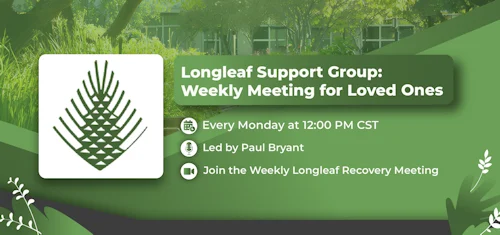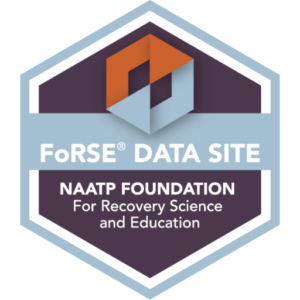Longleaf Recovery and Wellness offers medication management in Birmingham to help individuals better manage their mental health with the right treatment approach. Their team works with each person to assess symptoms, review medical history, and determine whether medication may be an appropriate part of their overall care plan.
In medication management, doctors and nurses work with you to make sure the medicine works well. They also help avoid side effects and dangerous interactions. Medication management goes beyond simply giving someone a prescription; it involves careful planning, follow-up, and individualized care. Medication management is about finding the right dose, the right timing, and the right fit for your body.
Medication management in Birmingham gives people structure and guidance during their healing process. It is especially helpful when symptoms are confusing or medications need to be carefully balanced. Providers explain what each medicine does and why it matters. They keep track of your progress and make changes when needed. This service gives peace of mind. It helps people feel safe, understood, and supported in their journey.


What is the Role of Medication in Mental Health and Addiction Treatment
In mental health, medications can reduce depression, anxiety, mood swings, and psychosis. In addiction recovery, they can ease cravings, prevent withdrawal, and support long-term sobriety. But medication alone is not a cure. It works best when combined with counseling and lifestyle changes.
Medication management helps ensure medications are used the right way. It helps individuals stay on track with their medication and follow their treatment more consistently. A trained provider checks for progress, changes in symptoms, and side effects. They adjust the medication when needed to keep treatment safe and effective. For many, this service helps create stability in a time of emotional chaos. It becomes one piece of a much larger recovery puzzle.
Why is Proper Medication Management Essential?
Medication management ensures that it doesn’t happen. Providers work closely with you to monitor how the medicine affects your body and mind. They identify issues early and make changes to the treatment as needed. They also make sure medications don’t interact in unsafe ways.
For mental health and addiction treatment, consistency matters. Skipping doses or taking the wrong amount can lead to setbacks. That’s why medication management includes education and reminders. It also includes regular check-ins. This process builds trust and helps you feel confident in your treatment.
When medication is carefully chosen and monitored, people often feel more stable and notice an improvement in daily life. This care can prevent hospital stays, reduce crises, and promote steady progress over time.
Insurances We Accept








Who Can Benefit from Medication Management Services?
Teens, adults, and seniors all use these services. Some people need help managing multiple medications. Others need guidance on side effects or changes in symptoms. Medication management helps people stay on track, especially during stressful times.
People living with depression, anxiety, ADHD, bipolar disorder, or schizophrenia can benefit. So can those recovering from alcohol or drug use. Families also benefit. When a loved one receives medication management, it brings reassurance. It helps reduce fear and confusion around medication.
Even people who feel stable can still benefit. Regular monitoring keeps things on course and catches problems early. This kind of service offers peace of mind, accountability, and expert help all in one place.
Common Conditions Treated with Medication Management
ADHD is another condition frequently treated through medication management. People with ADHD often benefit from medications that improve attention span and reduce impulsive actions. Other conditions that respond well to medication include OCD, panic disorder, and chronic insomnia.
Medication is also used to support recovery from substance use disorders. Certain medications can ease withdrawal symptoms, reduce cravings, and lower the risk of relapse. People recovering from opioids, alcohol, or stimulants may be prescribed medications as part of a broader recovery plan.
Because each person responds differently, medication management includes regular monitoring and adjustments. Providers assess how well the medication is working and modify the plan when needed. This helps ensure safer use, fewer side effects, and better long-term results.


How Does Medication Management Work?
If you start medication, they will explain how it works and what to expect. They may ask you to track your symptoms or write down side effects. You’ll return for follow-up visits to talk about how you’re feeling, and adjustments can be made if needed.
Medication management often includes lab work or physical exams. These steps help make sure the medicine is safe for your body. It’s a team effort. You and your provider work together to find what works best.
Over time, the goal is to reach stability. Once symptoms improve, you may be able to reduce or stop the medication. Medication management is always done carefully, with your provider’s guidance and support.
Working with a Psychiatrist or Nurse Practitioner
During medication management, providers carefully assess your symptoms, concerns, and treatment goals before making any decisions. They explain how the medicine works in simple terms. They also answer questions about side effects, risks, and what to expect.
Working with these providers can feel comforting. You have someone to guide you and respond when things feel off. They help take the guesswork out of medication. Appointments may be short, but they are focused and meaningful.
If you have other health conditions, they coordinate with your primary doctor. This helps avoid dangerous interactions and overlapping prescriptions. These decisions are made with guidance from trained professionals who work with you to find the best approach. Your provider is there to guide, support, and adjust as needed.
Medication Monitoring and Adjustments Over Time
During medication management, follow-ups are often scheduled at first. As things stabilize, visits may be less frequent. During check-ins, you talk about how you feel and what’s changed. Your provider may change the dose, switch medications, or add new ones.
You are part of this process. Your input matters. Providers listen to your feedback and adjust the plan accordingly. Monitoring also includes watching for warning signs, like mood shifts or sleep changes.
Adjustments are normal. They do not mean something is wrong. They show that your provider is staying involved and responsive. This ongoing attention helps many people feel safe and understood throughout their treatment.

How to Manage Side Effects and Medication Interactions
Your provider will discuss with you what is normal and what is not. If a side effect is uncomfortable, they will adjust your dose or try another medication. They also check if different medications might interact in a harmful way.
Some people take medications for physical health, too. That’s why it’s important to share your full list of prescriptions and supplements. Your provider uses that information to avoid dangerous combinations.
You don’t need to suffer through side effects. There are often options to make things easier. Medication management helps reduce discomfort and keeps you safe. With guidance, many people can find a balance that works for them. That balance often leads to fewer symptoms and a better quality of life.
Can Medication Be Integrated with Therapy and Holistic Treatment?
Holistic options like mindfulness, nutrition, or exercise can also support healing. When these are combined, people often feel stronger and more balanced. Providers work to create a plan that fits your life, values, and needs.
The provider may also connect you with a therapist or recommend additional resources to support your overall treatment plan. They may ask about your sleep, diet, or stress levels. All of this information helps guide treatment choices.
The goal is to treat the whole person. Medication can stabilize symptoms. Therapy helps explore deep emotional pain. Holistic practices promote self-care. Together, they form a powerful path forward.

Can Medication Management Be Used for Co-Occurring Disorders?
When someone has anxiety and also struggles with alcohol use, for example, treatment can get complicated. Medications need to be chosen with care. They must avoid triggering relapse or worsening symptoms.
Providers who specialize in co-occurring disorders understand these risks. They work slowly and thoughtfully. They focus on safety, balance, and long-term recovery. This kind of care reduces the chance of relapse or hospitalization.
Managing co-occurring disorders can be complex, especially when mental health and substance use symptoms affect each other. Medication management brings structure. It provides a steady plan and a provider who understands both parts of the struggle. This care can offer real relief.
Is Medication Management Right for You or Your Loved One?
It supports you in understanding your options and making well-informed decisions about your treatment plan. It also helps you feel less alone. Medication management is especially helpful if you are starting a new medicine or have tried different ones before without success.
If you’re caring for a loved one, this service can reduce stress. It helps you feel confident that they are being monitored and cared for. Medication decisions can be difficult to make alone. Having a provider makes the process easier.
You deserve clear answers and expert help. Medication management can bring relief and steady progress, one step at a time.

Finding Trusted Providers for Medication Management in Birmingham, AL
Look for licensed psychiatrists, psychiatric nurse practitioners, or clinics that offer medication management services. Ask if they have experience with your condition. Read reviews or ask your primary doctor for a referral.
Medication management should be a safe and respectful experience. You deserve care that honors your goals and comfort level. If something feels off, keep looking. A good provider wants to work with you, not over you.
You are not stuck with the first provider you meet. Trust your instincts. Choose someone who answers your questions and invites open discussion.
Insurance Coverage and Costs for Medication Services
Most plans cover visits with psychiatrists or nurse practitioners. Some plans also cover lab tests or follow-up appointments. If you don’t have insurance, ask about sliding scale fees or payment plans.
Medication management is often available through mental health clinics, hospitals, or private practices. Each one may have different costs. Some clinics offer free or low-cost services for people with limited income.
It’s a good idea to ask about costs upfront. A reliable provider will explain your options clearly, including payment or insurance details.

Start Your Path to Stability with Medication Management in Birmingham
The right provider will walk beside you, answer your questions, and adjust your plan as needed. This care is for real people with real challenges. It meets you where you are. Reach out today to find a trusted provider near you. Contact us to learn more about medication management in Birmingham and start your path toward healing and stability.







